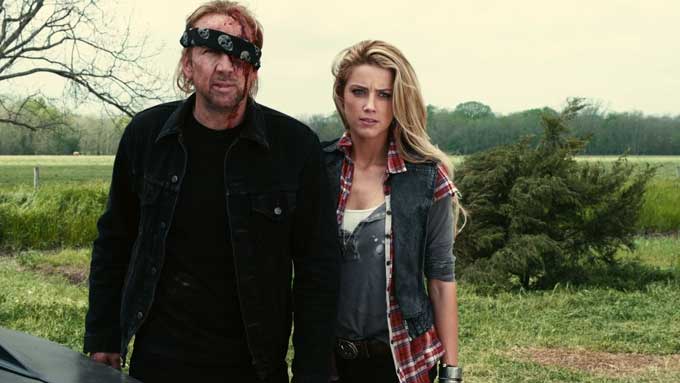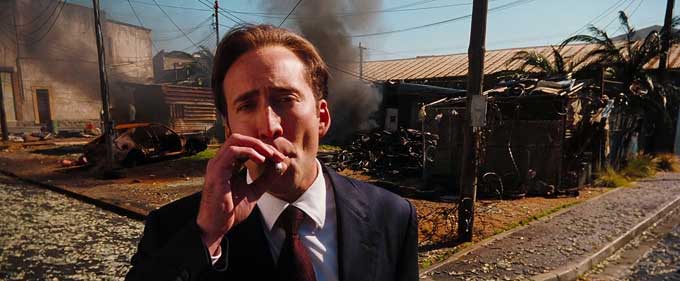Amos & Andrew (1993): The Shameful History of Classic Comedy [Joey’s Review]
AMOS & ANDREW has its roots firmly planted in an era where racism was not only accepted, but the norm. Its name is a reference to a radio show from the 1950s, “Amos & Andy,” where two white guys voiced a whole bunch of black characters on a show set in Harlem. When Amos & Andy made its way to TV, its characters were played by black actors, but its origins were founded in a manner that would never fly in today’s society.
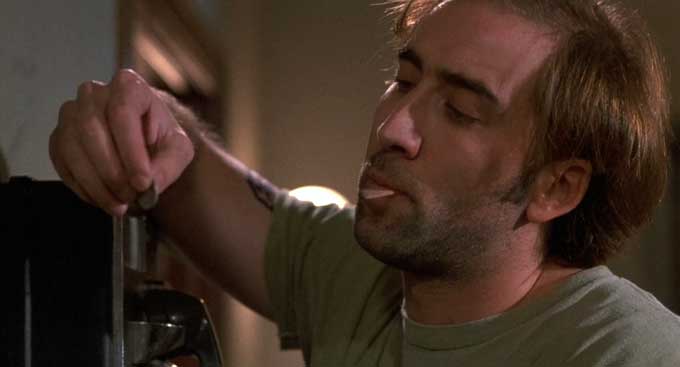
It’s fitting, then, that Amos & Andrew’s “comedy” follows in the rich tradition of racist comedy. Most egregiously, several characters don blackface (though it’s for “night ops” so there’s an “excuse”), which is something that just wouldn’t fly in today’s world. It’s one example of many that prove that Amos & Andrew is a relic of a really weird time — it’s of a simpler, more innocent era, but also made shortly after the Rodney King beating and the Los Angeles riots of 1992. It almost seems like a “funny” reflection back on racial tensions of the time, but it doesn’t land at all.
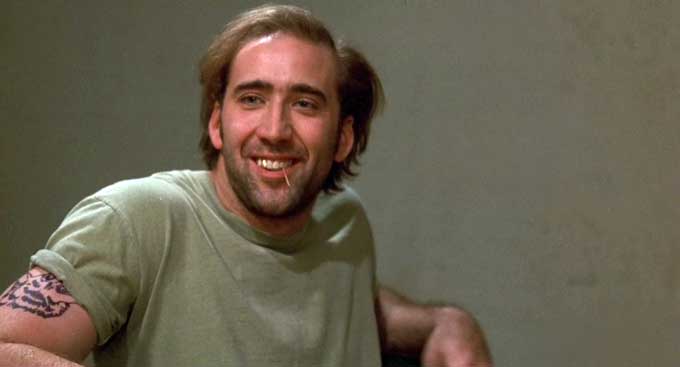
The whole conceit of the movie is that an old white couple sees Samuel L. Jackson fiddling with a stereo in a house that (used to) belong to one of their friends. They didn’t realize their friends had sold the house, though, or that Sam Jackson (a world-famous activist, playwright, and more) bought it, and is rightfully in that house. All they see is a black man in a house they don’t think he belongs in, and they call the cops. The cops, without ever seeking a shred of validation or proof, show up to his house, guns drawn, demanding he come outside. Brad Dourif (in a role far, far below his acting ability) even opens fire on Sam Jackson at one point; “He had a gun, I saw him holding a gun,” he says later in an attempt to defend himself and his actions.
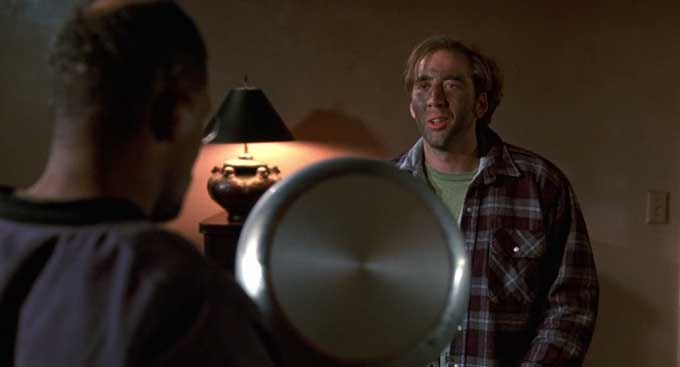
Even Cage’s character, Amos Odell, is a racist white man who ultimately sort-of-kind-of learns a lesson? At least in the end, Sam Jackson calls him “brother” (after being offended by Cage’s use of the term throughout the movie), seemingly ending racism once and for all! It’s all over, right guys? Racism is done? We can thank Amos & Andrew?
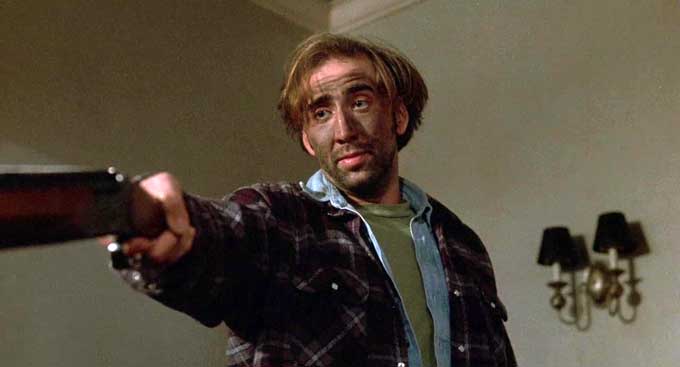
(Also worth noting: Dabney Coleman drops a really hard n-bomb in this movie.)
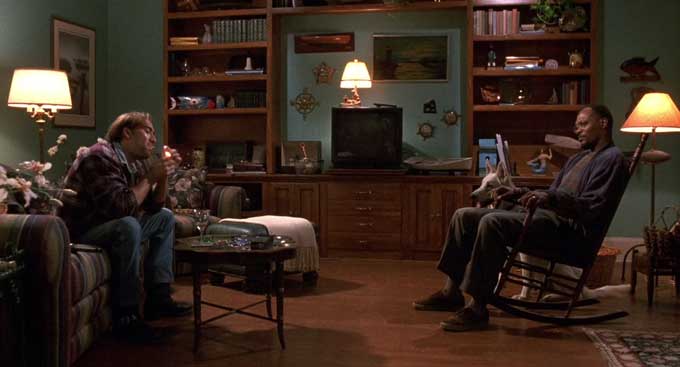
Amos Odell is in prison for either (a) being drunk and disorderly and getting into some mischief with an underage girl, or (b) statutory rape. We’re not exactly sure (we discuss it on the podcast, so listen tomorrow!), but ultimately it doesn’t matter. The cops spring him to cover up their SNAFU, and tell him they’ll let him be on his merry way to Canada if he goes into Sam Jackson’s house and “surrenders” to them. Odell owes these cops literally nothing, but still honors their demands and goes along with their plan in the house, even when things get out of control.
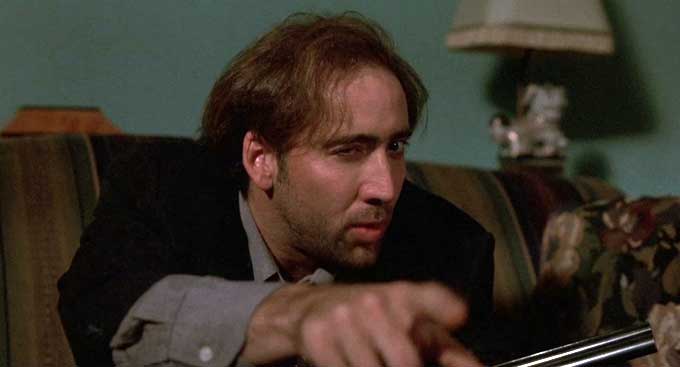
Cage fully commits to the plan. “You sure you ain’t the cook here?” he jokes to Sam Jackson. Of the shotgun he holds, he says, “Don’t worry, brother, it’s just for appearances.” It’s around this point, when Cage has only been on screen for 10 minutes and we’re only half an hour into the movie, that I thought, ‘Oh, man, this is gonna be the whole movie, isn’t it?’ It’s poor screenwriting, it’s poor storytelling, and it’s just overall bland and boring.
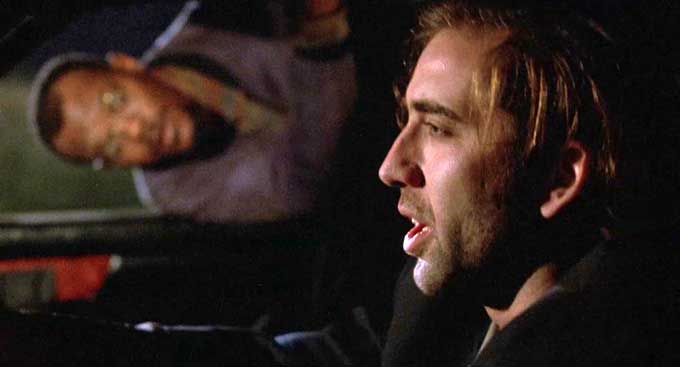
Wacky Antics Ensue, and Cage and Sam Jackson move from one house to a next and take a few more hostages. As time goes on, they learn that one another really aren’t so bad, ultimately leading to racial harmony. (Or, you know, not.) Hooray! (?) Meanwhile, Giancarlo Esposito (popping up for the second time in #CageClub, following his tiny part in THE COTTON CLUB) is summoning his best Martin Luther King, Jr. in Selma moment when he rallies a mob of angry black people to rise up against the incompetence, buffoonery, and overall racism of this inept police force. Except, in the process, they burn Sam Jackson’s house down. Oh well — comedy!
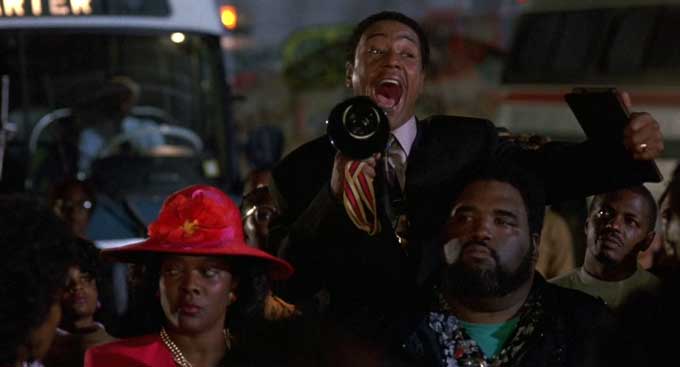
There’s so much about this movie that’s cringeworthy. It’s, by far, my least favorite movie in #CageClub, and one I will never return to. There’s almost nothing redeeming about this movie. Even though Cage, Jackson, and Dourif are all doing their best, they have absolutely nothing to work with. This goes extra for Bob Balaban, who plays the police psychiatrist and provides the only genuine entertainment of the movie as he has an ongoing monologue (spoken to no one) about the tragic state of his life.
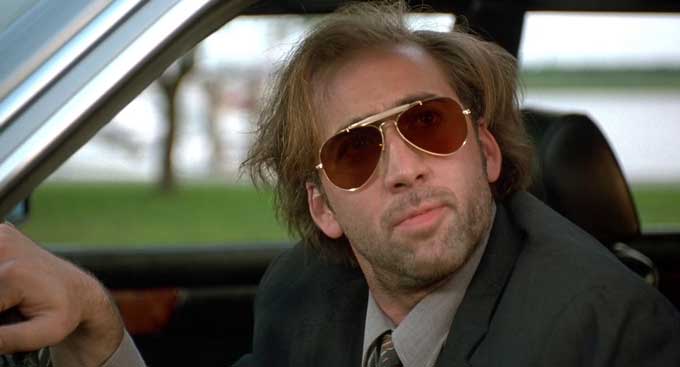
Amos & Andrew is a movie that could never be made today, and for good reason: it’s racist and awful. Luckily, we’re about to enter the most entertaining portion of Cage’s career, so this will soon be nothing more than a faint glimmer in our rearview mirror. Onto the next one!
How can I watch it? Just don’t.
What’s up next? We’re headed to Wyoming for Red Rock West! This is genuinely one of the best movies Cage has been in to this point in his career, so check this one out if you can find it.


